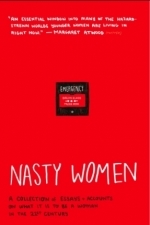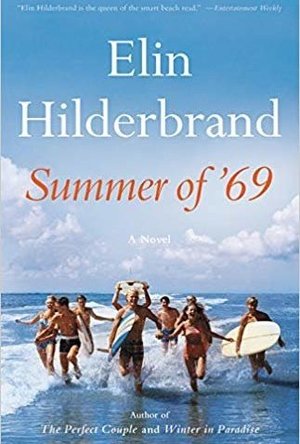
American Stranger: A Novel
Book
A daughter of Jewish refugees searches for love and a spiritual home in this novel by the National...

Super-Cannes
Book
Long-regarded as one of the true visionary writers of the twentieth century, J.G. Ballard was one of...
Heather Cranmer (2721 KP) created a post
Apr 3, 2022
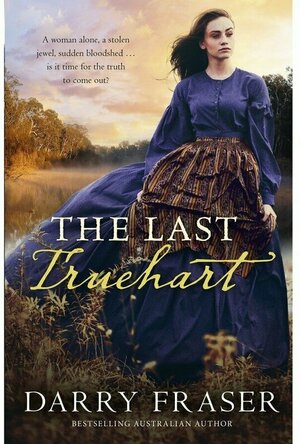
The Last Truehart
Book
1898, Geelong, Victoria. Stella Truehart is all alone in the world. Her good-for-nothing husband has...
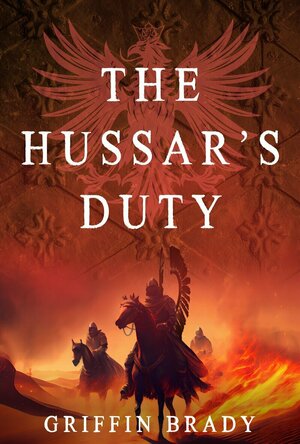
The Hussar's Duty (The Winged Warrior #3)
Book
Poland’s most valiant winged hussar is called to fight in a campaign ripe for disaster. But he...
Historical Fiction

The Virgins of Venice
Book
In sixteenth-century Venice, one young noblewoman dares to resist the choices made for her Venice...
Historical Fiction Women's Saga Renaissance
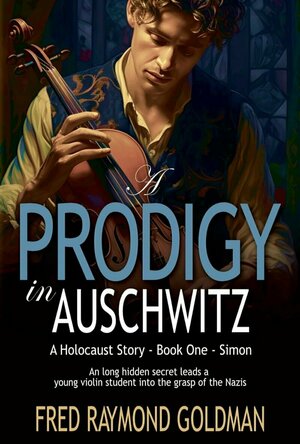
A Prodigy in Auschwitz: Simon
Book
When Nazi Germany troops enter Krakow, Poland on September 2, 1939, fourteen-year-old Simon Baron...
Historical Fiction WWII Auschwitz Jewish Survivor Story
Gareth von Kallenbach (980 KP) rated Total Recall (2012) in Movies
Aug 7, 2019
The premise follows the original in only a rough sense. Sometime in the future, the world has been left mostly uninhabitable due to a deadly chemical war across the globe. Humanity has been left to residing in the only remaining habitable landmasses – Western Europe and “The Colony”, the latter being modern-day Australia. Because air travel is now impossible, the only travel between the landmasses is through a massive elevator called “The Fall” that cuts through the center of the Earth. Douglas Quaid (Colin Farrell) is a factory worker who works in Europe but lives in “The Colony” with his wife, Lori (Kate Beckinstale). His chronic nightmares lead him to become interested in the “Rekall” service – a machine that can implant memories into customers. His interest will lead him on a wild journey with Melina (Jessica Biel) to learn about his true self as well as secrets of Cohaagen’s (Bryan Cranston) tyrannical administration.
The problems of the film really start with the premise. While I enjoy the creativity of something like “The Fall”, it is simply too ridiculous to take seriously. They deserve credit for coming up with a relatively unknown science fiction concept, but an elevator that travels through the center of the Earth? Peoples’ suspension of disbelief can only be pushed so far. It serves a practical purpose in the plot – to create the conflict between “The Colony” and the mainland and between the government and the Resistance. Yet, too much time is spent trying to introduce this concept and make it seem plausible than the film should. It honestly seems easier to just use the original film’s conflict between settings – Mars and Earth. I have to ask, what makes an elevator between two lands more contemporary of an idea than a conflict between colonial Mars and Earth. This is especially true considering recent news that a Mars colony might be seen in our lifetimes.
The other problems are more literary. Colin Farrell’s Douglas Quaid is portrayed very well throughout the film, and he manages to make the character satisfactory in the emotional portrayal of a man with a confused past and an insane situation. But even then, I have to say Arnold’s original portrayal seemed overall more human. The problem with Colin Farrell’s character is a mixture of performance and writing in his introduction. It is hard to believe him as someone so distraught over his nightmares that he absolutely feels compelled to go to Rekall. If they spent more time exploring his inner demons and how they are bringing his life down, then he would have been a much more compelling character. As it stands, he just goes through the motions of a protagonist. All of the other characters are the same way. Kate Beckinstale’s villainous Lori and Jessica Biel’s Melina are fairly shallow characters. They are not bad at their roles but that is all they, unfortunately, are: roles. Like Quaid, they just go through the motions, playing their part as clichéd character archetypes. Bryan Cranston is always awesome in any role, but in this he is not given much to work with. All he ends up being is just an evil tyrant with a megalomaniacal plot – with very little reason or background.
Those issues said, there are many things that do work. The pacing is good throughout, with no moments feeling awkward. The art design is exceptional, and there are no moments in the film that are boring to look at. To its credit, almost every scene is full of beautiful science-fiction design. The only complaint in this area is that some of the action scenes feel very cluttered due to the overall noise of The Colony’s design. The plot moves forward steadily, and it is overall simple to understand. That said, it is not without its own faults. The plot starts out great but becomes full of usual secret agent thriller clichés. Also, the plot becomes very campy, not to mention unbelievable, in its third act. The third act is also where there are the most plot holes – notable plot holes at that.
If you can shut your brain off for a couple hours, you can enjoy “Total Recall”. The film is pretty to look at and is absolutely packed with action sequences. All of the action sequences are well shot, well paced, and entertaining. The actors all do great with what they are given; but the problem is that they are not given much. They are all fairly flat characters, but are all satisfactory for the service of the plot – a plot that is well paced and understandable, but one that becomes campy, ridiculous, and peppered with notable plot holes. It is not as tightly written and directed to be a great secret agent thriller, and not as inspired to be a great science fiction story. The original was exceptional in its setting construction – pulling the audience into the amazingly designed Paul Verhoeven world. It was full of comedy and thrills, thought and design. As it stands, the moments that could really go far in establishing a passionate soul-filled, inspired world are instead spent on making quick references to those vary moments from the original. It could have established its own voice, its own heart and soul, but it just settles on being your clichéd average science fiction blockbuster.
Eilidh G Clark (177 KP) rated Nasty Women in Books
May 13, 2017
Becca Inglis
Nasty Women, published by 404 ink, is a collection of essays about what it is, and how it feels to be a woman in the 21st century. When I first picked up the book, I assumed, like I think most readers would, that it would be an easy book to just pick up and put down whenever I had a spare ten minutes. Wrong, I was sucked into this book right from the beginning, and read it all in a day. That doesn’t mean it was an easy read, or perhaps easy is the wrong word – it isn’t a comfortable read - and it isn’t meant to be. Nasty women is hard-hitting, eye-opening, and unashamedly honest.
The book opens with ‘Independence Day’ by Katie Muriel. A story of mixed race and identity in Trump’s America, Muriel discusses her experience of inter-family racism, heightened by political differences, ‘This is not the first, nor is it the last family divide Trump will leave in his wake, but I refuse to think of him as some deity who stands around shifting pieces on a board in his golden war room.’ The anger in this piece is clear, but it is the rationalism and clarity of the writer that speaks volumes. Race, racism and xenophobia, is a prominent feature in these stories. Claire L. Heuchan, for example, talks about ‘Othering’ a term that readers will see repeatedly in this book, ‘Scotland,’ she writes, ‘is a fairly isolating place to be a black woman.’
Survival is a key trope in Nasty Women. Mel Reeve, in ‘The Nastiness of Survival,’ talks about being a survivor of rape and emotional abuse, ‘I do not fit the ‘right’ definition of someone who has been raped.’ This statement alone is filled with irony.
I was particularly drawn to Laura Waddell’s essay, ‘Against Stereotypes: Working Class Girls and Working Class Art.’ Laura talks about the difficulty of both gender and class inequality, and, in particular, the lack of working class writers and working class fiction being published, ‘I have read a lot of fiction’ she says, ‘I have read almost none from housing estates such as the one I grew up on. These stories are missing, from shelves, and from the record.’ As a Scottish fiction writer from a working-class background myself, these words resonate deeply.
Alice Tarbuck’s ‘Foraging and Feminism: Hedge-Witchcraft in the 21st Century’, is almost fun to read in a deeply devastating way. There is a desperate tone in this piece, and a desperate need to escape society. ‘There is beauty and bounty around us if we look for it, and perhaps that is all the magic we need. Or perhaps, what we need is real magic, whether that comes in the form of resistance and community or the form of blackthorn charms and skullcap tinctures, and howling to the moon.
I loved this book. This book gives women a voice. And it is loud! Well done 404 Ink, and all the contributors, for bravely breaking the silence.
Kristy H (1252 KP) rated Summer of '69 in Books
Aug 23, 2019
I just love Elin Hilderbrand's books and this was a really fun one. It didn't feel that much like "historical fiction," despite the 1969 setting, but it was fascinating to get a glimpse of how the late 1960s affected the family and their decisions--especially the females. The time period affects each woman, even Jessie, in their own way. Mom Kate was a tough one to love, at times, ignoring her poor daughter and moaning about Tiger and her own past. But, man, Hilderbrand just comes up with the best family dynamics. She sets an amazing scene, aided by her beloved Nantucket, and before you know it, you are there with her characters, immersed in their drama and daily lives.
For me, the star of this one was young Jessie. I loved how much of the book revolved around her--the points of view vary, but we hear from her a lot, and I couldn't help but love the kid. Nothing like growing up with a slightly absent mom, domineering grandmother, and a bunch of way older siblings, one of whom is at war. She was a breath of fresh air, and of course, Hilderbrand wrote from a teenage point of view perfectly. She gives all Kate's daughters their own unique voice, and it's amazing how each character stands out easily as distinct from one another.
This is not "simply" a tale of a family over a summer, it's captivating and engaging look at a family shaped by historical and domestic circumstances. I certainly enjoyed this novel and would definitely recommend it. I usually shy away from historical fiction, but I found it quite interesting--great characters and family dynamics as always from our summer novel queen. 4 stars.

